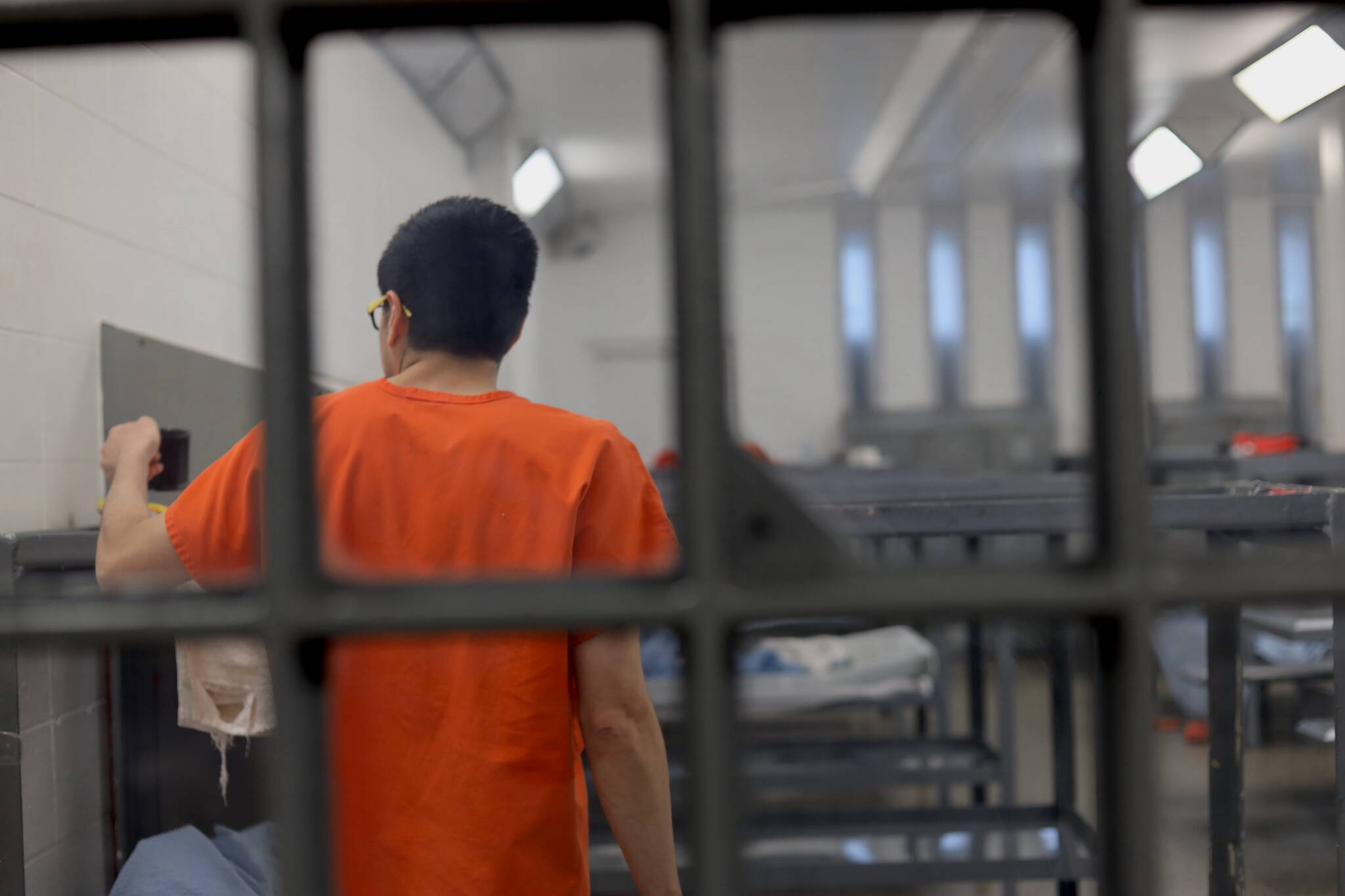As Juneau’s Lemon Creek Correctional Center tackles structural repairs and renovations following “extreme wet weather” last fall that caused instability at certain locations and prompted emergency repairs, the prison is currently only holding 45% of its inmate capacity, according to prison officials.
In an interview Monday, prison Superintendent Bob Cordle said LCCC has about 100 inmates at the facility – about 55% less than its capacity. That number is a significant increase compared to last fall when it was revealed about 20% of the people incarcerated at LCCC — around 45-50 people — were transferred from the Juneau prison to facilities in Southcentral Alaska as LCCC underwent “foundation emergency repairs.”
“We lost a good section of space and, in the end, we decided to go ahead and relocate the inmates,” he said. “They went to various facilities, but there’s no change in their status except for where they’re where they’re being housed.”
Along with the decrease in inmates, Cordle said the facility is reportedly down 10 officers, about an 18.5% vacancy rate.
“I wouldn’t say it’s concerning, but there’s a lot more demand put on the staff for overtime and different things,” he said. “We’re in a pretty good spot and we’re working at recruiting pretty heavily.”
The prison, which opened in 1969, has a capacity of 226 inmates and serves as both a long-term and intake facility for men and women who are sentenced felons and/or people awaiting arraignment, trial or sentencing, according to the Alaska Department of Corrections.
Cordle said the relocation of inmates remains temporary and is expected to only last the duration of the repair project. In late June the DOC was seeking contractors to tackle an estimated $5-10 million project to address additional repairs to the prison’s foundations, walls, floors, detention doors and cells, and will renovate the existing chapel area into a revised medical and dental layout.
Cordle said while inmates are being temporarily held at prisons across the state, many often partake in “maintenance transfers,” meaning they are brought back to Juneau for court and other legal obligations that require them to return. He said maintenance transfers occur “once a week at times.”
“We want to keep our numbers down to a manageable level for the amount of living space we have, but when we have people that need to come back for court reasons we fly them back,” he said.
Upon their release, transferred inmates have the option to be returned to the place of their arrest or from the facility where their last housed, per state statute and DOC policy. An estimated timeline of when transferred inmates there would be returned and the prison’s capacity would return to normal depends on the completion of the repair project, Cordle explained.
“We’re probably looking at a calendar year, November 2024,” said Cliff Reagle, the facilities and OSHA administrator for the DOC.
Reagle said he believes the prison is currently stabilized, though he noted investigative work is ongoing.
“One of the issues that was discovered was the rain meters from the roof were broken underground, so it was undermining some of the building foundations,” he said.
While LCCC currently remains significantly below its capacity, DOC Commissioner Jen Winkleman on Monday said the current daily inmate population has been running at about 85% at prisons statewide and “has been holding steady to that for quite some time.” She said the required repairs at LCCC have presented a “unique situation” for capacity at other facilities, but DOC has managed to keep all facilities under capacity for more than a year.
“Keeping the capacity down in our facilities has been a very big challenge, but we’ve met that and it’s something we’re really proud of,” she said.
With the repairs causing a portion of the prison to remain uninhabited, so is the prison’s “tent,” a temporary-like canvas tent that sits on a wooden platform that the prison has used for more than a decade to house female inmates when the number of women incarcerated reached above the facility’s capacity. Inmates held there are required to be in minimum custody.
“The tent is actually kind of a coveted place to live because it’s fresh air,” Cordle said. “It is a secure area, but it’s an area that we use for overflow. So we don’t want people out there that are doing long-term (sentences), even though it is a secure area.”
Cordle said the tent is not a permanent solution and it will likely be replaced with a steel building within a two-year cycle. However, “if we reopen to full capacity, then we will put people back in the tent,” he said.
• Contact reporter Clarise Larson at clarise.larson@juneauempire.com or (651) 528-1807.

